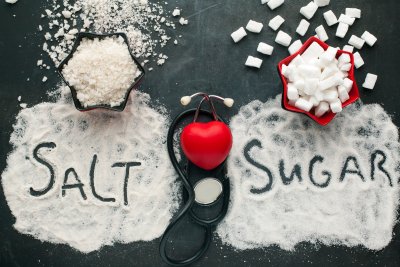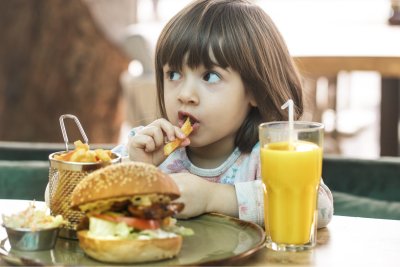On the face of it, today's Ofsted report showing that fewer pupils are eating the new, healthier school meals is a slap in the face to campaigners. Surely this is the proof that "nanny state" measures like healthy school meals are doomed to failure?
Actually, this could not be further from the truth.
This report will surprise all those who thought that the issue of school food was sorted after the government changed school food standards, following Jamie Oliver's exposure of the truly appalling state of what we were feeding our children.
The UK's children remain in the grip of a diet-related health crisis. The vast majority eat too much fat, salt and sugar and the health time bomb that results is exploding. We are seeing rapid rises in childhood obesity, as well as type 2 diabetes, which used to be only found in adults.
Improving school food is a vital part of a wider effort to defuse the time bomb. It accounts for a significant proportion of children's food and also has a symbolic importance; after all, if even schools do not serve children healthy food, why should anyone else?
The school food revolution is in its early stages. Better menus were introduced into most schools at the beginning of the academic year a month or so ago. The tougher nutritional standards will be introduced into primary schools next year and into secondary schools the year after that.
It was predictable that there would be an initial fall in the number of children eating the new food. This is just what happened to Jamie himself at Kidbrooke School, and in most other places where they have been tried. Take-up usually rises over time as children get used to the new meals. Indeed, Ofsted reported that take-up of meals was rising in primary schools. This is no time to panic.
But it is clear that much more can be done to persuade children to eat the healthier meals. There are real differences in the number of children eating the healthy meals between schools that actually put some effort into marketing them, and those that do not. The report also notes that it is vital the schools engage children and parents in deciding what food should be served.
Moreover, Ofsted shows that the schools that are most successful at improving diets, are the ones that have a "whole school" approach to food, where meals are linked to lessons in nutrition and cookery. In light of this, it is deeply disappointing that the government has decided to use lottery money to fund voluntary school cookery clubs, instead of simply making cookery a compulsory part of the national curriculum for teenagers.
It is unfair to expect schools to become food marketing experts overnight, so the School Food Trust, the government agency established to oversee the new healthy school food regime, must do far more to help schools to persuade children to eat better.
Ofsted shows that investing in better facilities is also vital. It is plain daft that, until very recently, new PFI schools were being built without the kitchens necessary to cook the better menus.
However, in its own way, the Ofsted report says something very profound about our food culture. Reports that schools have to teach pupils how to use a knife and fork show that it is impossible to separate the food culture children face in schools from the food culture that surrounds their lives.
In the end, children will eat what they want. When I was at school, it was cool to climb over the fence to go and have a chip sandwich for lunch. Limiting their access to junk food at schools is a good start, but is only a small part of a much wider solution to the problem: we need to persuade children not to want to eat unhealthy food in the first place.
If the government is really serious about improving children's diets, they must look at the factors that persuade children to eat the kind of food that they do - and that means really protecting children from ubiquitous marketing of junk food.
Richard Watts
Article first published on the Guardian website - October 3, 2007 5:30 PM: http://commentisfree.guardian.co.uk/richard_watts/2007/10/cooking_up_a_storm.html
Children's Food Campaign: Better food and food teaching for children in schools, and protection of children from junk food marketing are the aims of Sustain's high-profile Children's Food Campaign. We also want clear food labelling that can be understood by everyone, including children.








